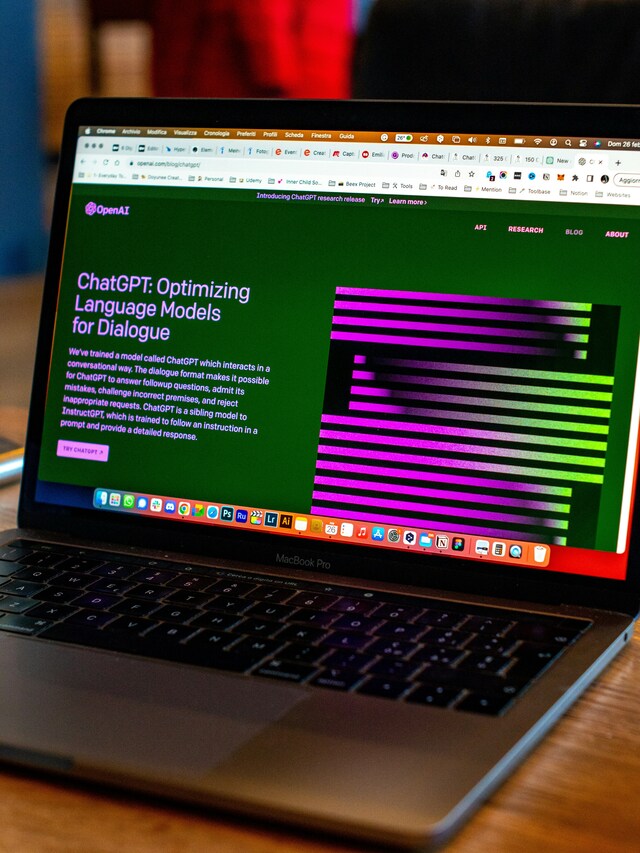As the banking industry continues to evolve in the digital age, one disruptive force stands out above all – Artificial Intelligence (AI). AI is revolutionizing how banks handle compliance and reporting, offering a blend of efficiency and accuracy never seen before. Let’s dive into the realm where cutting-edge technology meets regulatory requirements, shaping the future of banking compliance as we know it.
Benefits of AI in Banking Compliance and Reporting
AI in banking compliance offers a range of benefits that help institutions stay ahead in a rapidly evolving regulatory landscape. One major advantage is the ability to automate repetitive tasks, saving time and reducing human error. By analyzing vast amounts of data quickly and accurately, AI enhances risk management processes, allowing for more proactive decision-making.
AI can improve overall efficiency by streamlining compliance workflows and identifying potential issues before they escalate. This technology enables banks to enhance customer service through faster response times and personalized solutions based on individual behavior patterns.
Another key benefit is the cost-effectiveness of implementing AI systems compared to traditional manual methods. Banks can allocate resources more efficiently while maintaining high levels of compliance with regulations.
The integration of AI in banking compliance not only boosts operational efficiency but also strengthens risk management capabilities for sustainable growth in an increasingly complex regulatory environment.
Challenges and Risks of Implementing AI in Banking Compliance
Implementing AI in banking compliance comes with its fair share of challenges and risks. One major challenge is the need for continuous monitoring and updating of AI algorithms to ensure they remain compliant with ever-evolving regulations. Moreover, there may be a lack of understanding among stakeholders about how AI operates, leading to resistance or skepticism towards its implementation.
Another risk is the potential for errors in AI systems, which could result in incorrect reporting or non-compliance issues. Additionally, there are concerns around data privacy and security when sensitive information is being processed by AI algorithms.
Integrating AI into existing compliance processes can be complex and time-consuming. It requires significant initial investment in technology infrastructure and staff training to ensure seamless adoption without disrupting operations.
Despite these challenges and risks, many banks are actively exploring ways to leverage AI effectively while mitigating associated pitfalls through careful planning and oversight.
Case Studies of Banks Using AI for Compliance
Let’s take a closer look at how banks are leveraging AI to enhance their compliance efforts. Bank X, a leading financial institution, has successfully implemented AI algorithms to analyze vast amounts of data for detecting suspicious activities and ensuring regulatory compliance. Through machine learning capabilities, Bank X can now proactively identify potential risks and streamline their reporting processes.
Another example is Bank Y, which has integrated AI-powered solutions to monitor transactions in real-time. By automating the monitoring process, Bank Y can promptly detect anomalies and flag any unusual behavior for further investigation. This proactive approach not only strengthens their compliance measures but also improves operational efficiency.
Bank Z has adopted AI technologies to improve its customer due diligence processes. By utilizing natural language processing and cognitive computing, they can efficiently screen customers against watchlists and enhance their KYC procedures. This enables them to onboard clients faster while maintaining stringent regulatory standards.
These case studies highlight the transformative impact of AI on banking compliance practices.
Balancing Efficiency and Risk Management with AI in Banking Compliance
In the fast-paced world of banking compliance, AI is proving to be a game-changer. By leveraging advanced technologies such as machine learning and natural language processing, banks can enhance their efficiency in monitoring transactions, detecting fraud, and ensuring regulatory adherence.
While the benefits of AI in banking compliance are undeniable, it’s crucial for financial institutions to tread carefully. Implementing AI comes with its own set of challenges and risks, including data privacy concerns, algorithm bias, and the need for constant monitoring and validation.
To strike the right balance between efficiency and risk management with AI in banking compliance, organizations must invest in robust training programs for employees to understand how to work alongside these technologies effectively. Additionally, regular audits and checks should be conducted to ensure that AI systems are operating ethically and within legal boundaries.
By embracing AI responsibly and thoughtfully integrating it into their compliance processes, banks can stay ahead of regulatory requirements while streamlining operations for a more secure future.


